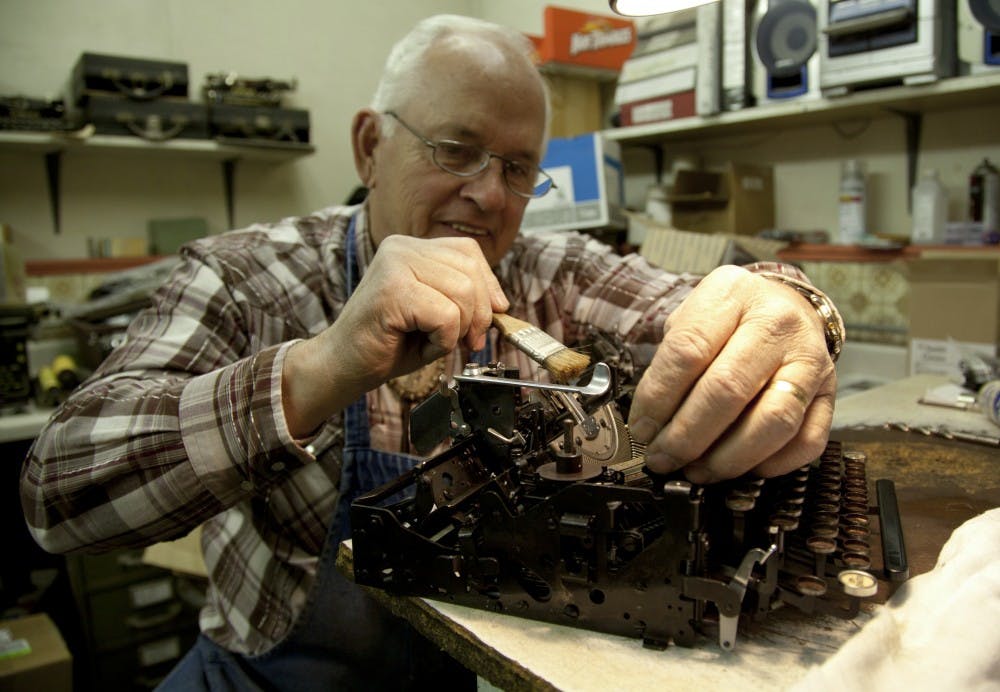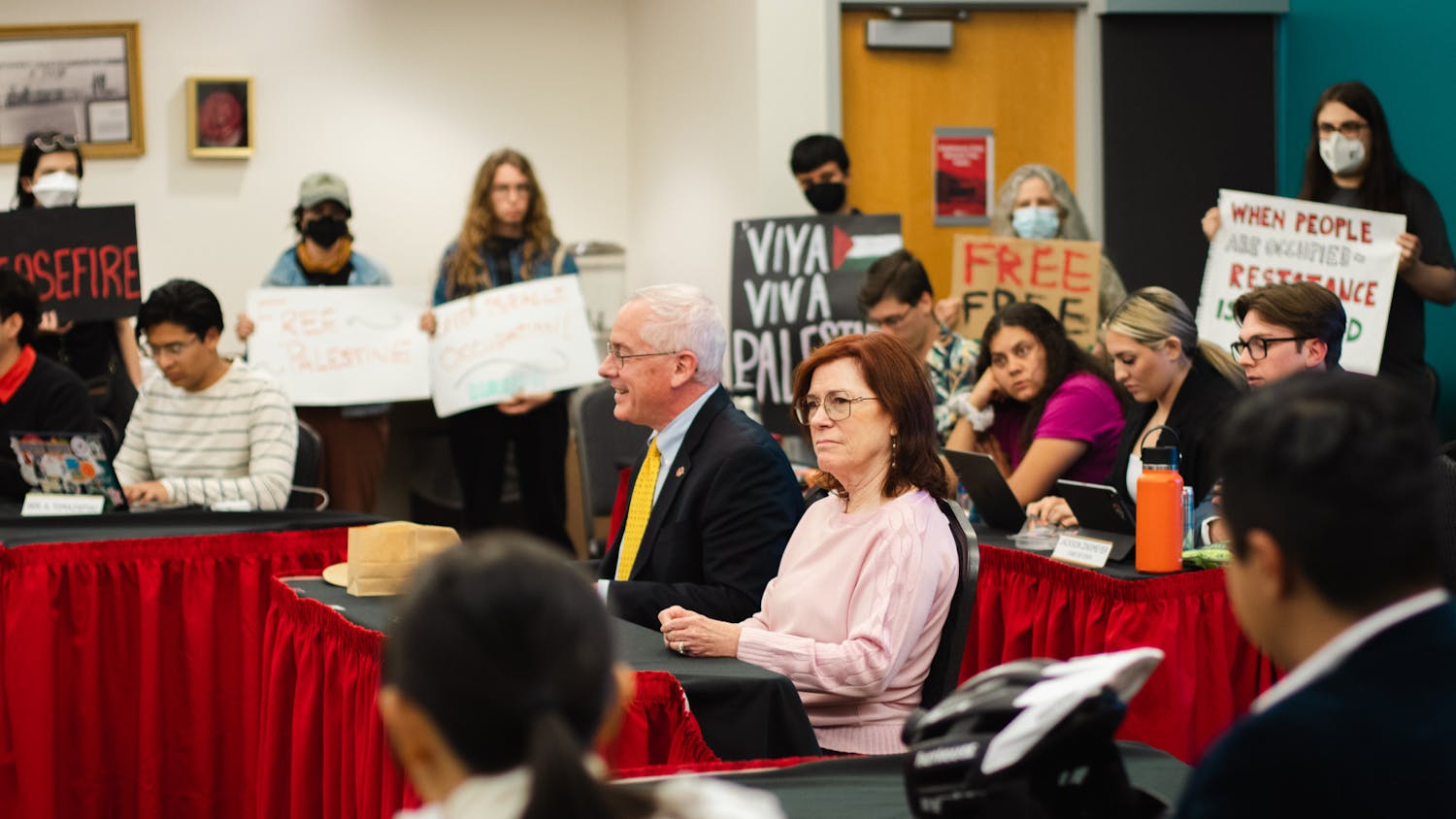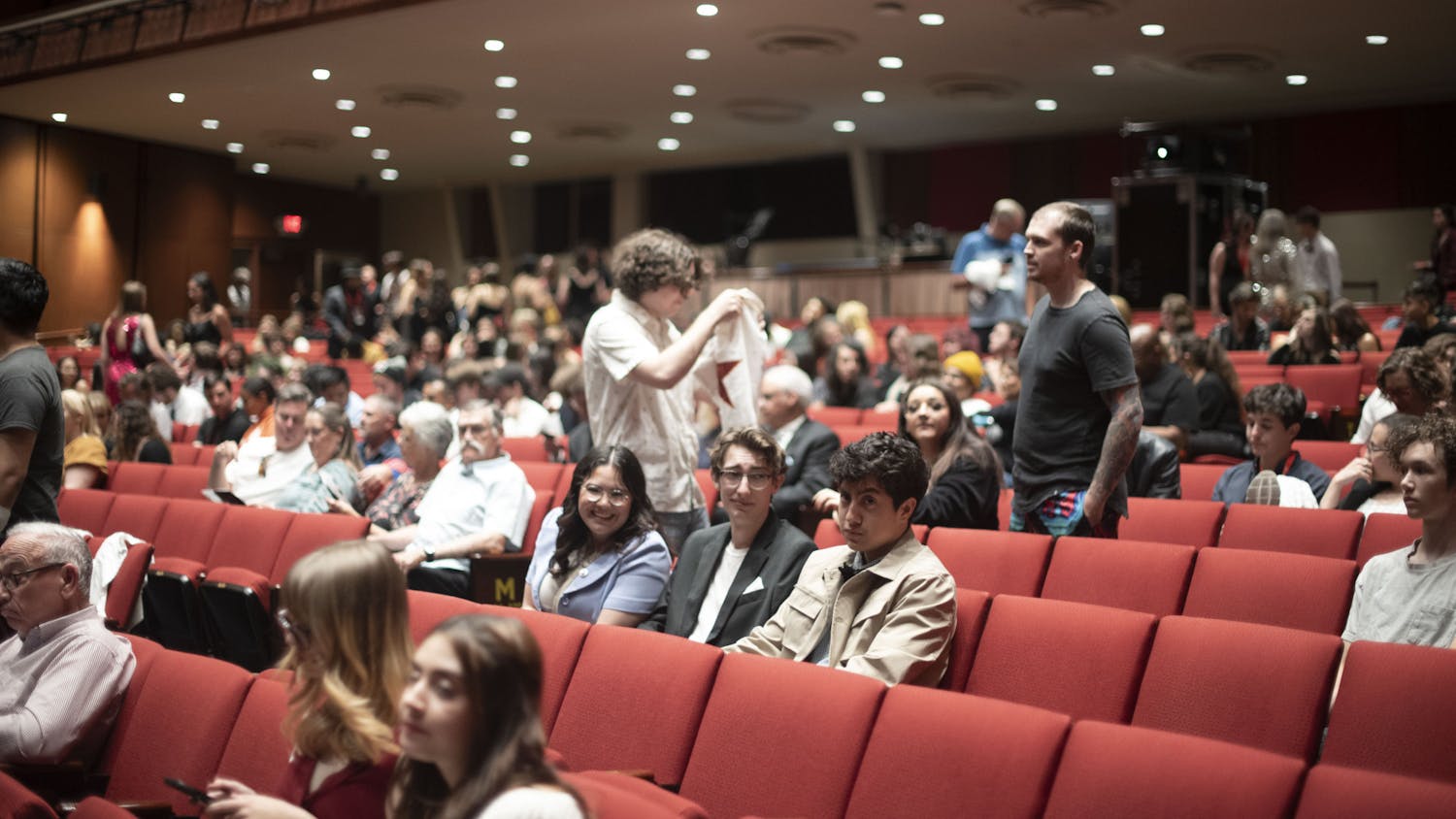John Lewis placed a 100-year-old diamond-tipped phonograph needle onto a half-inch thick record, and “Cowgirl Polka” blasted from the wood cabinet. He opened the cabinet doors and pulled on a string attached to a large ball of cotton that moved in and out of a horn, softening and amplifying the sound.
“I just finished repairing this one,” he said, pointing to a different 1880s music box. “It’s going back to its owner as soon as he pays for it.”
John Lewis is the founder, owner and repairman of John Lewis’ Mechanical Antiques & Repair, a shop that repairs, restores and cleans vintage typewriters, phonographs, music boxes and pretty much anything mechanical. The shop has been in business since the ‘70s, and John Lewis is one of a few typewriter repairmen in the United States. He receives typewriters from across the United States and Europe, and said the wait for a repair is at least six to eight months.
“He told you six to eight months? It’s a lot longer than that,” said his wife and shop co-founder Darlene Lewis.
John Lewis has obtained so many unique, historical typewriters over the years that he compiled them into a museum exhibition. His collection includes a typewriter owned by the world’s fastest typer (she typed at 170 words per minute), a phonograph with four turntables for 19th century disc jockeys and a mannequin rotator for dress shops. But he said the museum is not really open to the public — just sometimes.
“I can’t do this and repairs too, so we’ll probably wind up closing it completely and just do repairs,” John Lewis said.
“There’s no point in having a museum if you can’t walk through. I enjoy this, talking about it, educating people, and if I’m back working on a machine, I can’t do that.”
John Lewis’ phonograph turntable is the only one of its kind in the world. He said he sent photographs to a phonograph expert, and the man had never seen the machine before.
“The first thing I got back in my email was ‘Wow, do you want to sell it?’” John Lewis said. “He’d never seen one, even though he’s written about hundreds of different phonographs. I wouldn’t sell that for $10,000.”
John Lewis said the shop sees a constant stream of work, especially recently as typewriters have become more popular.
“Every semester we get one or two students who want to buy a typewriter,” he said. “They’re inspired by Hemingway or Kerouac or somebody like that. People your age are finding these for the first time, and they go out and find one at a thrift store, and they bring it in; they want to know all about it, and they want a ribbon for it and they want it fixed.”
Although he doesn’t use a typewriter for personal business, John Lewis said there’s a timeless appeal to them.
“People are discovering that they can actually sit down and compose, and it’s different than a computer,” he said. “The computer can do so much more — spelling, size changing — but when you get done with a typewriter, what you see on that paper is you. It’s there.”
Bruce Rajala visited the shop Wednesday morning to donate some old typewriters from an electronics company that closed. He said he learned to type on a typewriter and that it was a useful skill for his career.
Get content from The Daily Lobo delivered to your inbox
“I learned on a typewriter in school,” he said. “Back then they actually worked, they had really nice ink and paper. When I was a freshman or sophomore, I was typing like 60 or 70 words per minute; I was one of the better ones in the class. That helped a lot for computers later on.”
John Lewis started as a typewriter repair intern in Anchorage, Alaska, when he needed a job after serving with the Marines. He found his first old typewriter in a friend’s basement, and his collection grew from there. When he and his wife opened the shop in the ‘70s, they kept collecting vintage mechanical items.
“I’ve been doing it for 47 years, so they find you, you find them and one day you just have to put them out somewhere. I have no more room to house them,” he said.
John Lewis said he has had to get rid of some of his typewriters, but those were the same models people are bringing to him to repair now.
“We had a lot of junk, and by junk, I mean we had a huge moving truck and I made three trips to the dump with typewriters,” he said. “They were ‘30s, ‘40s and ‘50s typewriters, and that’s what I’m repairing now.”






